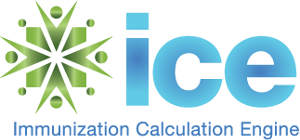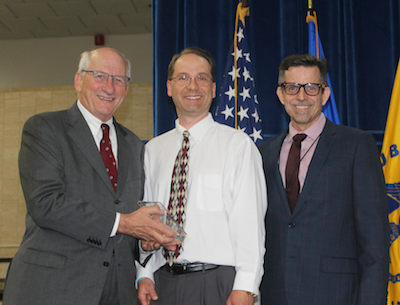public health surveillance
See the following -
A Major Lesson from Ebola: Pandemics Are Strongly Driven by Inequality
 After more than a year since the Ebola pandemic appeared in West Africa, Liberia – one of the worst hit countries – has been declared free of the virus. However, the initial global response was not encouraging. Despite having the knowledge and technology needed to contain the outbreak, help was initially sluggish and poorly effective. This situation illustrates one of the major lessons from the history of pandemics: that they are strongly influenced by health inequalities. Pandemics are epidemics that spread widely and cross borders. In many respects, the world is a safer place for those concerned about these emerging infectious diseases – advances in science, particularly molecular biology, information technology, and epidemiology give us unprecedented tools for understanding, tracking and managing emerging threats...
After more than a year since the Ebola pandemic appeared in West Africa, Liberia – one of the worst hit countries – has been declared free of the virus. However, the initial global response was not encouraging. Despite having the knowledge and technology needed to contain the outbreak, help was initially sluggish and poorly effective. This situation illustrates one of the major lessons from the history of pandemics: that they are strongly influenced by health inequalities. Pandemics are epidemics that spread widely and cross borders. In many respects, the world is a safer place for those concerned about these emerging infectious diseases – advances in science, particularly molecular biology, information technology, and epidemiology give us unprecedented tools for understanding, tracking and managing emerging threats...
- Login to post comments
AIRA 2018: Is Open Source the Key to Immunization Software Sustainability?
 On August 14-16, 2018 the American Immunization Registry Association (AIRA) held its 2018 National Meeting. This meeting brought together more than 350 informatics professionals, public health officials, EHR vendors, and other stakeholders who all care passionately about Immunization Information Systems (IIS) and their role in the healthcare community. IIS projects leverage interoperability with EHRs, PHRs, and other systems to promote clinical practice at the point of care; enable public health surveillance, and reduce cost by assisting in preventing both under and over immunization.
On August 14-16, 2018 the American Immunization Registry Association (AIRA) held its 2018 National Meeting. This meeting brought together more than 350 informatics professionals, public health officials, EHR vendors, and other stakeholders who all care passionately about Immunization Information Systems (IIS) and their role in the healthcare community. IIS projects leverage interoperability with EHRs, PHRs, and other systems to promote clinical practice at the point of care; enable public health surveillance, and reduce cost by assisting in preventing both under and over immunization.
- Login to post comments
Clinical Decision Support Strategies for Electronic Case Reporting and its Open Source Connection
 A key element of public health surveillance is the reporting of infectious and certain non-infectious conditions to state, local, and tribal public health agencies (PHA) around the United States. Historically, there have been a number of key challenges with the process of case reporting that is pervasive in the United States today. To help overcome some of these barriers, an effort has been underway to move the process of case reporting to electronic. A key component of the emerging electronic care reporting (eCR) strategy is the use of clinical decision support (CDS) to help clinical care organizations determine if a reportable condition is present in a patient's record. Multiple approaches have been identified for this CDS service, including a centralized model being implemented today, and several distributed options which will likely become equally viable. Given the size, diversity, and decentralized nature of healthcare enterprises, it is likely that all three approaches for CDS discussed in this article will be deployed simultaneously.
A key element of public health surveillance is the reporting of infectious and certain non-infectious conditions to state, local, and tribal public health agencies (PHA) around the United States. Historically, there have been a number of key challenges with the process of case reporting that is pervasive in the United States today. To help overcome some of these barriers, an effort has been underway to move the process of case reporting to electronic. A key component of the emerging electronic care reporting (eCR) strategy is the use of clinical decision support (CDS) to help clinical care organizations determine if a reportable condition is present in a patient's record. Multiple approaches have been identified for this CDS service, including a centralized model being implemented today, and several distributed options which will likely become equally viable. Given the size, diversity, and decentralized nature of healthcare enterprises, it is likely that all three approaches for CDS discussed in this article will be deployed simultaneously.
- Login to post comments
Coronavirus Adds New Stress To Antiquated Health Record-Keeping
 The U.S. health care system is on the leading edge of many technologies - except when it comes to passing information between doctors, laboratories, and public health officials. And that could add another snarl to the already troubled effort to test for coronavirus. Overreliance on faxing, phones and paper records is problem enough in ordinary times. Adding thousands of coronavirus tests a day will test the ability of providers, labs, and public health officials to keep track of all the results. Because not all results are automatically downloaded into physicians' records, the doctors may need to log into laboratory web portals or, if all else fails, turn to faxes and phones to learn test results.
The U.S. health care system is on the leading edge of many technologies - except when it comes to passing information between doctors, laboratories, and public health officials. And that could add another snarl to the already troubled effort to test for coronavirus. Overreliance on faxing, phones and paper records is problem enough in ordinary times. Adding thousands of coronavirus tests a day will test the ability of providers, labs, and public health officials to keep track of all the results. Because not all results are automatically downloaded into physicians' records, the doctors may need to log into laboratory web portals or, if all else fails, turn to faxes and phones to learn test results.
- Login to post comments
Flagship Project on Precision Medicine for Underserved Women Will Advance Learning Health System
 Marc Wine, a supporter of the LHS - Precision Medicine PCOS Project and participant in Learning Health Community initiatives, who attended the summit hosted by the president said, "One goal is to seek collaboration with underserved communities in genomics, open data and integrative medicine. This will result in engaging individual patients in ways that will move them from dependency on fragmented healthcare to the point where patients can use their own evidence-based genetic information to make the very best health decisions." The Precision Medicine PCOS Project is aimed at developing a protocol for women with PCOS while employing an integrative medicine approach to treatment based on the participant's molecular makeup, clinical data and available scientific knowledge.
Marc Wine, a supporter of the LHS - Precision Medicine PCOS Project and participant in Learning Health Community initiatives, who attended the summit hosted by the president said, "One goal is to seek collaboration with underserved communities in genomics, open data and integrative medicine. This will result in engaging individual patients in ways that will move them from dependency on fragmented healthcare to the point where patients can use their own evidence-based genetic information to make the very best health decisions." The Precision Medicine PCOS Project is aimed at developing a protocol for women with PCOS while employing an integrative medicine approach to treatment based on the participant's molecular makeup, clinical data and available scientific knowledge.
- Login to post comments
HLN Releases New Version of Award Winning Open Source Immunization Forecaster
 HLN released a new version (v1.11.1) of the Immunization Calculation Engine (ICE) on March 9, 2018. ICE is a state-of-the-art open-source software system that provides clinical decision support (CDS) for immunizations for use in Immunization Information Systems (IIS), Electronic Health Record (EHR) and Personal Health Record (PHR) Systems. The release includes support for Earliest Date and Overdue Date for immunizations that are forecasted. If enabled, ICE will output two additional forecast dates along with the existing Recommendation Date...
HLN released a new version (v1.11.1) of the Immunization Calculation Engine (ICE) on March 9, 2018. ICE is a state-of-the-art open-source software system that provides clinical decision support (CDS) for immunizations for use in Immunization Information Systems (IIS), Electronic Health Record (EHR) and Personal Health Record (PHR) Systems. The release includes support for Earliest Date and Overdue Date for immunizations that are forecasted. If enabled, ICE will output two additional forecast dates along with the existing Recommendation Date...
- Login to post comments
HLN Releases New Version of Open Source Immunization Forecaster
 HLN Consulting has released a new version of the award winning Immunization Calculation Engine (ICE). ICE is a service-oriented, standards-based immunization forecasting software system that evaluates a patient's immunization history and generates the appropriate immunization recommendations. ICE can be used in Immunization Information Systems (IIS), Electronic Health Records (EHR), Health Information Exchanges (HIEs), and Personal Health Record (PHR) Systems. The release includes changes to the rules for several vaccine series, including Polio, Meningococcal ACWY, and Influenza.
HLN Consulting has released a new version of the award winning Immunization Calculation Engine (ICE). ICE is a service-oriented, standards-based immunization forecasting software system that evaluates a patient's immunization history and generates the appropriate immunization recommendations. ICE can be used in Immunization Information Systems (IIS), Electronic Health Records (EHR), Health Information Exchanges (HIEs), and Personal Health Record (PHR) Systems. The release includes changes to the rules for several vaccine series, including Polio, Meningococcal ACWY, and Influenza.
- Login to post comments
HLN Releases Roadmap for Open Source Immunization Forecaster
 On September 7, 2017 HLN Consulting released a product Roadmap for its award winning Immunization Calculation Engine (ICE). ICE is an open source service-oriented, standards-based immunization forecasting software system that evaluates a patient's immunization history and generates the appropriate immunization recommendations. The Roadmap describes modifications that have already been scheduled for inclusion in new releases of ICE in the near future, in addition to ongoing changes that may be required to maintain compliance with Advisory Committee on Immunization Practices (ACIP) recommendations...
On September 7, 2017 HLN Consulting released a product Roadmap for its award winning Immunization Calculation Engine (ICE). ICE is an open source service-oriented, standards-based immunization forecasting software system that evaluates a patient's immunization history and generates the appropriate immunization recommendations. The Roadmap describes modifications that have already been scheduled for inclusion in new releases of ICE in the near future, in addition to ongoing changes that may be required to maintain compliance with Advisory Committee on Immunization Practices (ACIP) recommendations...
- Login to post comments
HLN Releases v 1.9.1.0 of its Open Source Immunization Forecaster
 HLN Consulting has released a new version of the award winning Immunization Calculation Engine (ICE). ICE is a service-oriented, standards-based immunization forecasting software system that evaluates a patient's immunization history and generates the appropriate immunization recommendations. ICE can be used in Immunization Information Systems (IIS), Electronic Health Records (EHR), Health Information Exchanges (HIEs), and Personal Health Record (PHR) Systems...
HLN Consulting has released a new version of the award winning Immunization Calculation Engine (ICE). ICE is a service-oriented, standards-based immunization forecasting software system that evaluates a patient's immunization history and generates the appropriate immunization recommendations. ICE can be used in Immunization Information Systems (IIS), Electronic Health Records (EHR), Health Information Exchanges (HIEs), and Personal Health Record (PHR) Systems...
- Login to post comments
HLN's Open Source Immunization Forecaster Receives 2017 Upshot Award
 On June 6, 2017, HLN was awarded the 2017 Upshot Award for Excellence in Vaccine Supply, Access, and Use by the US Department of Health and Human Services National Vaccine Program Office (NVPO) for its ICE Open Source Immunization Forecaster. In the letter of award, Dr. Jewel Mullen, Principal Deputy Assistant Secretary for Health commented that, "HLN Consulting's efforts on the Immunization Calculation Engine (ICE) are impressive. This powerful tool-including its open-source nature and seamless integration into clinical workflows-holds great promise for improving clinical decision-support and ultimately vaccination rates. Thank you for daring to innovate, collaborate, and lead in an area that is not only complex, but constantly evolving."
On June 6, 2017, HLN was awarded the 2017 Upshot Award for Excellence in Vaccine Supply, Access, and Use by the US Department of Health and Human Services National Vaccine Program Office (NVPO) for its ICE Open Source Immunization Forecaster. In the letter of award, Dr. Jewel Mullen, Principal Deputy Assistant Secretary for Health commented that, "HLN Consulting's efforts on the Immunization Calculation Engine (ICE) are impressive. This powerful tool-including its open-source nature and seamless integration into clinical workflows-holds great promise for improving clinical decision-support and ultimately vaccination rates. Thank you for daring to innovate, collaborate, and lead in an area that is not only complex, but constantly evolving."
- Login to post comments
How are Clinical Decision Support Artifacts Tested Today?
 In October 2018 the Centers for Disease Control and Prevention (CDC) issued a Request for Information (RFI) for a Natural Test Collaborative (NTC). Through a series of questions, the RFI seeks opinions and information about "The development of a national testbed (notionally called the National Test Collaborative (NTC)) for real-world testing of health information technology (IT)" and "Approaches for creating a sustainable infrastructure" to achieve it. The scope of this RFI is daunting. It might be useful, rather than to try to tackle this whole topic broadly but superficially, to take just one Clinical Decision Support (CDS) domain and show as completely as possible how testing is currently done.
In October 2018 the Centers for Disease Control and Prevention (CDC) issued a Request for Information (RFI) for a Natural Test Collaborative (NTC). Through a series of questions, the RFI seeks opinions and information about "The development of a national testbed (notionally called the National Test Collaborative (NTC)) for real-world testing of health information technology (IT)" and "Approaches for creating a sustainable infrastructure" to achieve it. The scope of this RFI is daunting. It might be useful, rather than to try to tackle this whole topic broadly but superficially, to take just one Clinical Decision Support (CDS) domain and show as completely as possible how testing is currently done.
- Login to post comments
Open Source Solutions For Public Health Case Reporting and COVID-19
 The United States is continuing its slow emergence from a nation-wide shut down imposed to slow down the spread of COVID-19. Most states have started to reopen, with bars, restaurants, and many workplaces starting to fill. As people begin to spend more time together again, it is critically important that public health agencies do everything they can to help prevent further spread of the infection and continue to monitor the level of infection within the population. Data is an important tool that public health has to understand what is going on in the country. Years of limited government investment and neglect of current systems has limited public health's ability to meet the challenges of managing both localized outbreaks and pandemics.
The United States is continuing its slow emergence from a nation-wide shut down imposed to slow down the spread of COVID-19. Most states have started to reopen, with bars, restaurants, and many workplaces starting to fill. As people begin to spend more time together again, it is critically important that public health agencies do everything they can to help prevent further spread of the infection and continue to monitor the level of infection within the population. Data is an important tool that public health has to understand what is going on in the country. Years of limited government investment and neglect of current systems has limited public health's ability to meet the challenges of managing both localized outbreaks and pandemics.
- Login to post comments
Overdue Outbreak Detection System Leaves Patchwork Defense
 The U.S. should have had a nationwide network to monitor for the next viral outbreak or biological threat a decade ago. It still doesn't. Instead, public health leaders make do with a patchwork system while waiting for the Department of Health and Human Services races to get its integrated network in service by a new 2023 congressional deadline. Until that nationwide monitoring system is in place, the U.S. runs the risk that a biological threat like a disease outbreak will take hold before it's noticed. "The risk is that we don't have the level of surveillance that we need. The risk is that there are things basically flying under the radar," said Helen Boucher, an infectious diseases clinician at Tufts Medical Center in Boston and director of the university's Center for Integrated Management of Antimicrobial Resistance.
The U.S. should have had a nationwide network to monitor for the next viral outbreak or biological threat a decade ago. It still doesn't. Instead, public health leaders make do with a patchwork system while waiting for the Department of Health and Human Services races to get its integrated network in service by a new 2023 congressional deadline. Until that nationwide monitoring system is in place, the U.S. runs the risk that a biological threat like a disease outbreak will take hold before it's noticed. "The risk is that we don't have the level of surveillance that we need. The risk is that there are things basically flying under the radar," said Helen Boucher, an infectious diseases clinician at Tufts Medical Center in Boston and director of the university's Center for Integrated Management of Antimicrobial Resistance.
- Login to post comments
Patients Join Advisory Board of Revolutionary Precision Medicine Study of PCOS Disease and Women's Health
 Open Source Health Inc., a cloud based precision medicine platform that puts control into the hands of women to educate, advocate and collaborate on their own healthcare is pleased to announce the appointment of a 10 person Precision Medicine Patient Advisory Board. “Involving patients in the design of every aspect of their Precision Medicine care is revolutionary,” says Sonya Satveit, CEO of Open Source Health Inc., “Women with PCOS have been underserved in healthcare for a long time, and now for the first time, we have brought them to the forefront of innovation to trail blaze a new path to optimal health. Precision Medicine is the next paradigm shift in healthcare and it’s exciting to have an amazing group of women involved as we create a new standard of care.”
Open Source Health Inc., a cloud based precision medicine platform that puts control into the hands of women to educate, advocate and collaborate on their own healthcare is pleased to announce the appointment of a 10 person Precision Medicine Patient Advisory Board. “Involving patients in the design of every aspect of their Precision Medicine care is revolutionary,” says Sonya Satveit, CEO of Open Source Health Inc., “Women with PCOS have been underserved in healthcare for a long time, and now for the first time, we have brought them to the forefront of innovation to trail blaze a new path to optimal health. Precision Medicine is the next paradigm shift in healthcare and it’s exciting to have an amazing group of women involved as we create a new standard of care.”
- Login to post comments
